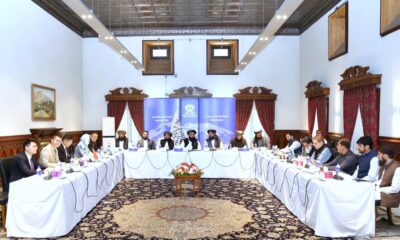Latest News
Muttaqi meets his Turkmen counterpart
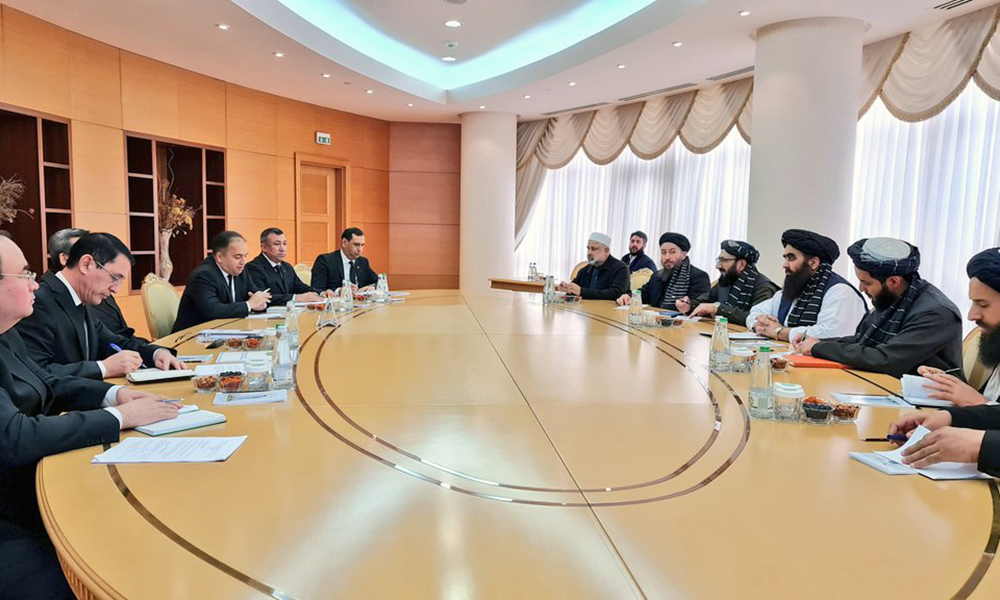
The acting Minister of Foreign Affairs Amir Khan Muttaqi met with the Deputy Minister of the Council of Ministers of Turkmenistan and the Minister of Foreign Affairs Rashid Meredov on Monday for talks on bilateral issues.
In this meeting chaired by the two foreign ministers, they discussed relations between Afghanistan and Turkmenistan, raising the level of Afghanistan’s diplomatic presence in Ashgabat, and the practical start of the TAPI project in Afghanistan.
Comprehensive discussions were held regarding the increase of Turkmenistan’s imported electricity to Herat province, the rehabilitation of existing roads, the development of Afghanistan’s railways and Turkmenistan’s investment.
Muttaqi thanked his Turkmen counterpart for the invitation to visit the country and said that the increase in travel between officials of the two countries shows close and friendly relations.
Muttaqi requested that in order to increase bilateral trade, facilities should be provided for the issuance of Turkmen visas to Afghan businessmen and transport personnel.
He also thanked the Turkmen side for providing training to the railway personnel of Afghanistan and expressed the hope that Turkmenistan scholarships for Afghan students would increase.
In addition, Muttaqi provided information about Afghanistan’s preparations for the actual start of the TAPI project in Afghanistan and expressed the hope that in the near future both countries would be able to start practical work on the project.
Muttaqi also presented information on the progress of work at Noorul Jihad substation in Herat, and the need for more electricity in Herat province.
“One of the main pillars of the foreign policy of the Islamic Emirate of Afghanistan is economy-oriented, which focuses on regional economic connectivity, and the construction of highways and railways in Afghanistan is one of the priorities of the Emirate,” said Muttaqi.
The Minister of Foreign Affairs encouraged Turkmenistan to invest in the extension of the railway line between Turghandi-Herat city and Andakhoi-Shabarghan to Mazar-e-Sharif.
The Minister of Foreign Affairs of Turkmenistan, in turn shed light on all relevant issues from his side.
Meredov said that increasing the country’s trade with Afghanistan is a strategic priority and both teams will work to facilitate the movement of Afghan businessmen and transport personnel to Turkmenistan.
Meredov showed his readiness to give scholarships to Afghan students in the fields of electricity, railways, transportation and gas.
He said that his country has done a lot of work on the TAPI project and teams from both countries will work to start practical work on TAPI in the territory of Afghanistan in the near future.
He said that TAPI is a big project and has strategic importance for Turkmenistan.
Meredov also said that their teams are working in Herat to increase the capacity of Noorul Jihad substation so that electricity can be increased in areas surrounding Herat city.
He said that the railway line to Afghanistan is of strategic importance to the country and the plan to increase the capacity of the railway station in Turghandi has been finalized, and hopefully work will soon start on this project.
The development of the lapis lazuli route was also discussed and it was agreed that a meeting of representatives of the five countries of the proposed route will be held in Ashgabat in the near future.
The two sides agreed to continue to work together on relevant fields at a high level so that practical steps can be taken in the interests of both countries.
Latest News
Baradar meets Mes Aynak project director, urges quick construction start

Deputy Prime Minister for Economic Affairs, Mullah Abdul Ghani Baradar, on Saturday in Kabul met with Wang Zhicheng, the Director General of the contracting company for the Mes Aynak copper mine in Logar province.
During the meeting, Baradar described Mes Aynak as one of Afghanistan’s key economic projects and emphasized that the Islamic Emirate has provided all necessary facilities to support the contracting company in advancing the project, according to a statement from his office.
Baradar urged the company to begin the construction phase of the project as soon as possible and to address any issues causing delays.
Wang Zhicheng, Director General of MCC, praised the cooperation of the Islamic Emirate in furthering the project.
He mentioned that significant progress has been made in several aspects of the Mes Aynak project and expressed readiness to proceed with the next steps in coordination with the Ministry of Mines and Petroleum.
The Aynak copper mine contains millions of tons of copper and is believed to have the second-largest copper reserve in the world.
The contract for the Aynak copper mine was signed in 1999 with the Chinese company MCC for 30 years, but due to security issues and prolonged excavations of ancient relics in the area, the extraction of copper was delayed.
Latest News
Afghanistan, Pakistan and China agree to hold sixth round of FMs’ talks in Kabul
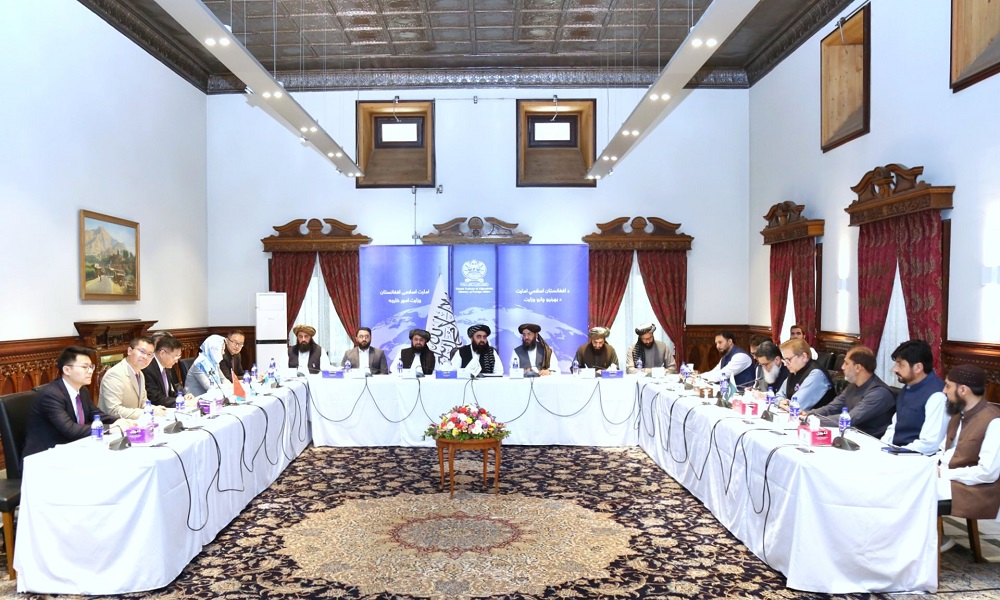
The special representatives of Pakistan and China for Afghanistan, along with Amir Khan Muttaqi, the acting foreign minister of Afghanistan, agreed in a trilateral meeting held on Saturday that the sixth round of foreign ministers’ talks among the three countries will be held in Kabul.
Zia Ahmad Takal, Head of Public Relations at the Ministry of Foreign Affairs, said in a statement that Muttaqi, Yue Xiaoyong, and Mohammad Sadiq also agreed to begin preparations for the upcoming meeting of the foreign ministers of Kabul, Islamabad, and Beijing.
Today’s trilateral meeting addressed follow-up issues related to the fifth round of foreign ministers’ dialogue among Afghanistan, China, and Pakistan, as well as discussions on political and economic cooperation among the three countries.
During this meeting, Muttaqi emphasized the importance of political and economic relations between Afghanistan and the two countries and expressed hope for “significant progress” in these areas in the future.
The special envoys from China and Pakistan reaffirmed their commitment to strengthening relations with Afghanistan based on good neighborliness and mutual respect.
Pakistan’s envoy Sadiq also said in a post on X page that today’s trilateral meeting provided an opportunity to align views on economic and security cooperation, as well as regional stability.
Latest News
Pakistan says India launched attack on Afghanistan, India denies
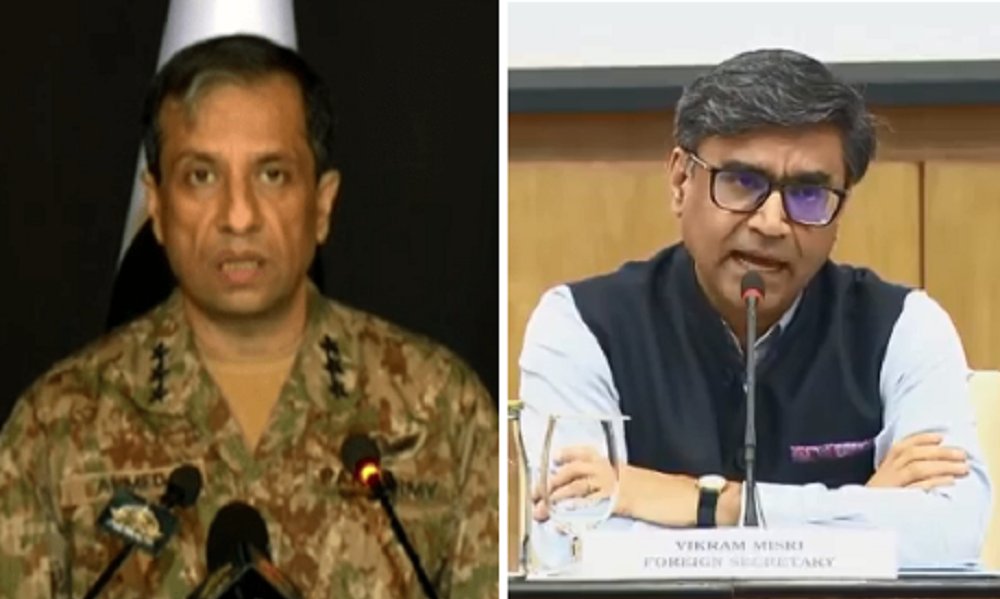
The Pakistani military has claimed that India launched missile and drone attack on Afghanistan.
Pakistan Army spokesman Ahmad Sharif Chaudhry made the claim at a news conference, calling Afghanistan a “brotherly” country.
India, however, has rejected the claim as “ludicrous.”
“I only want to point out that the Afghan people don’t need to be reminded about which country it is that has, on multiple occasions in just the last one and a half years, targeted civilian populations and civilian infrastructure in Afghanistan” said Indian Foreign Secretary Vikram Misri.
-

 Regional5 days ago
Regional5 days agoIran’s foreign minister urges restraint in India, Pakistan standoff
-

 Latest News4 days ago
Latest News4 days agoCabinet Meeting convened to discuss Afghanistan’s population census plan
-

 International Sports4 days ago
International Sports4 days agoIPL 2025: Seven teams fighting for four spots
-
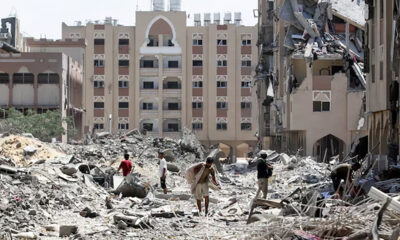
 World4 days ago
World4 days agoIsrael may seize all Gaza in expanded operation, officials say
-
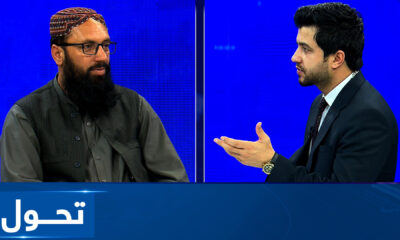
 Tahawol5 days ago
Tahawol5 days agoTahawol: Economic activities in Afghanistan discussed
-

 Regional3 days ago
Regional3 days agoAt least 26 civilians killed in Indian strikes on Pakistan: Islamabad
-
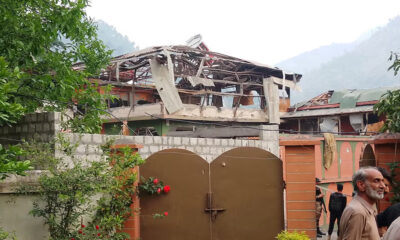
 Regional4 days ago
Regional4 days agoIndia strikes Pakistan over Kashmir tourist killings
-
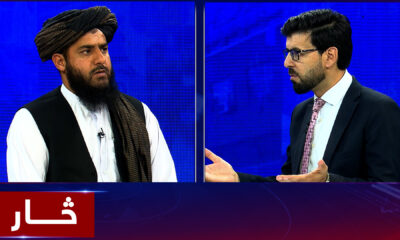
 Saar5 days ago
Saar5 days agoSaar: Mines Ministry’s achievements, challenges discussed








